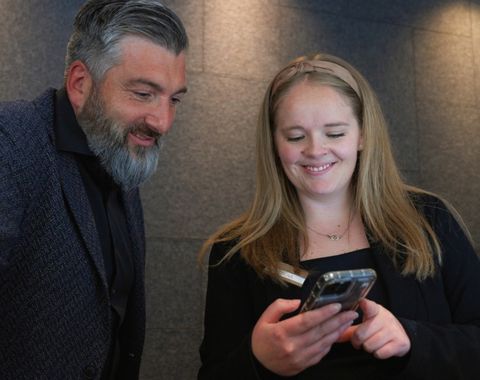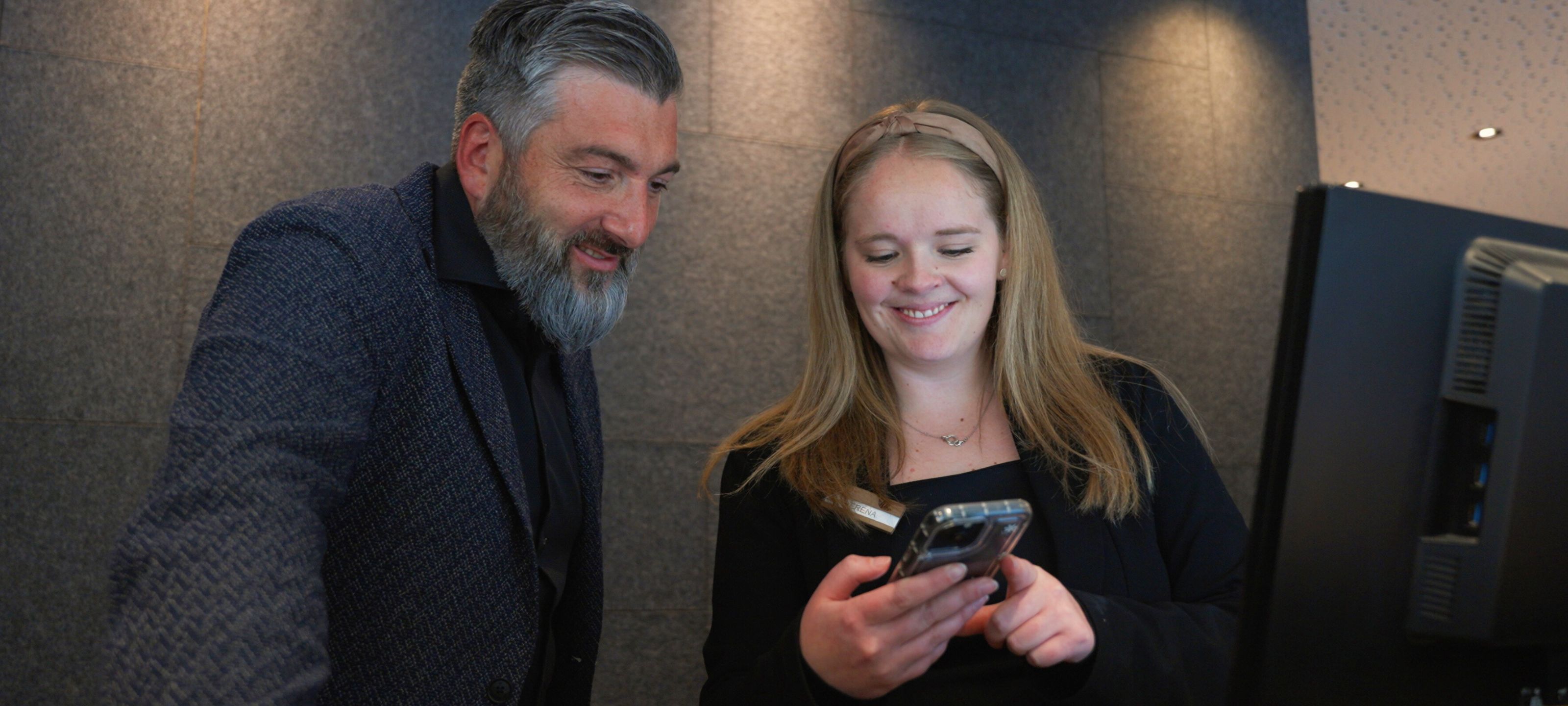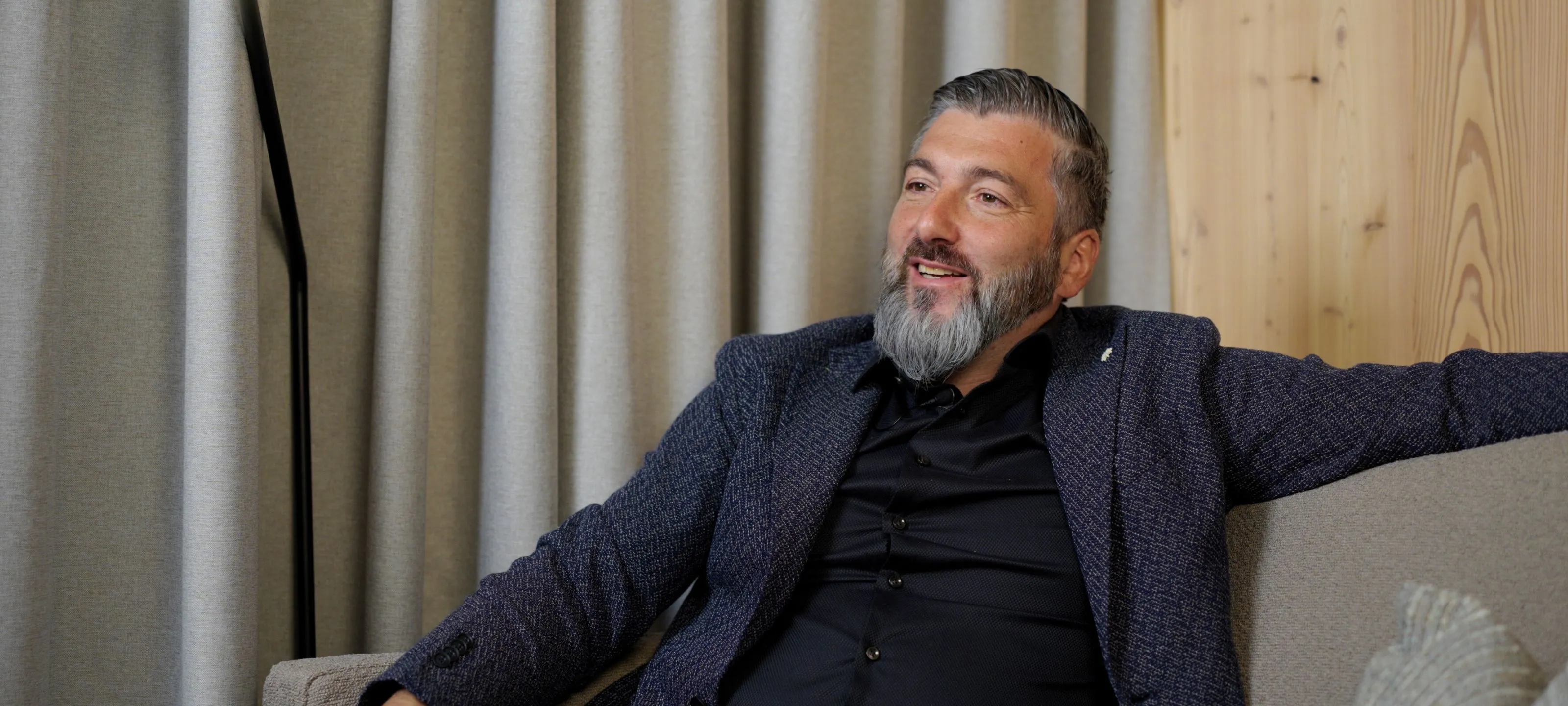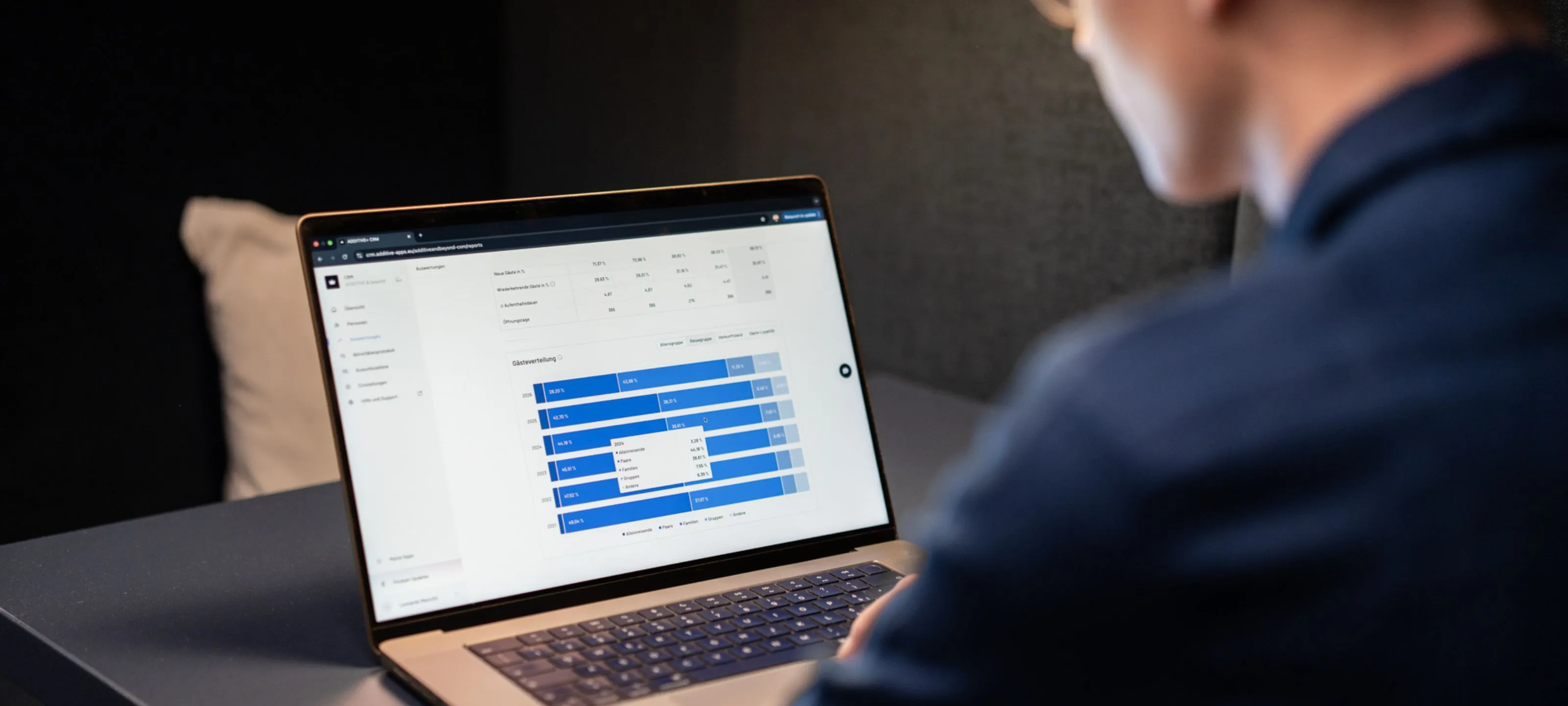.webp)
In Conversation with Fritz Dickamp, L.I.K.E. Hospitality Consulting Berlin

How can hotels increase visibility and bookings with digital strategies? Fritz Dickamp of L.I.K.E. Hospitality Consulting Berlin shares his expertise on innovative online marketing approaches and successful digital strategies for the hospitality industry.
<div class="article_quote is-img">
<img
src="https://cdn.prod.website-files.com/673f1b4d7fc04861927e7983/67b44c83e3db462d14eac161_800x800px%20-%20Im%20Ge_spra%CC%88ch%20mit%20Fritz%20Dickamp%2C%20L.I.K.E.%20Hospitality%20Consulting%20Berlin.jpg" loading="lazy" alt=""
class="article_quote_img">
<div class="article_quote_contain is-img">
<div class="article_quote_quote">
"The endless opportunities of digitalization are also a challenge." </div>
<div class="article_quote_name u-text-style-main">
Fritz Dickamp
</div>
</div>
</div>
Fritz Dickamp has worked as an event manager and in human resources at the prestigious Ecole Hôtelière de Lausanne. Since 2015, he has been co-founder and managing director of the agency L.I.K.E. Hospitality Consulting, which supports tourism companies in their development in the digital space. To complement L.I.K.E.'s consulting activities, in 2019 he co-founded hotelwebbee, a full-service digital agency for hotels and hospitality. He is also a guest lecturer, keynote speaker and co-host of the Smack Hospitality Podcast.
.webp)
Rethinking Digital Strategies for the Hospitality Industry
<h3 class="interview-question">What distinguishes L.I.K.E. Hospitality Consulting from other tourism consultancies? In short, what makes you unique?</h3>
With L.I.K.E., we have created a brand that specializes in the topics that we believe are becoming increasingly relevant to the hospitality industry and makes them more tangible to hoteliers. This includes digital communication, e-commerce and everything related to it, such as websites, social media, reputation management, content or influencer marketing.
In addition to L.I.K.E., an agency for digital communication in the hotel and tourism industry, we founded hotelwebbee some time later.
This is the counterpart to L.I.K.E. and is responsible for the implementation of operational activities such as website creation, content creation or work on social media channels. Our brand structure thus consists of a management consultancy on the one hand and a full-service agency on the other, with experts from both the hotel industry and online marketing working together.
What also makes us unique here in Berlin is that we work exclusively in the hospitality industry. We've built our expertise in this industry and we don't want to dilute it.
<h3 class="interview-question">How much has the hospitality industry changed in times of digitalization / digital transformation? What are the opportunities and benefits?</h3>
he possibilities of digitalization are endless and we are still at the beginning of this development. However, one must not forget that there are still many hotels, even in the 4- or 5-star range, that do not have an adequate digital presence. On the one hand, this is due to the fact that the industry was poorly prepared for digitalization. On the other hand, when hoteliers started to look into it, they focused on another issue, namely the supposed battle with OTAs (Online Travel Agencies). In fact, digital marketing and a proper digital presence should have been taken care of.
In the meantime, the situation has improved and there are standards that are being adhered to. However, we are still far from reaching a certain digital standard in the industry and many hotels still need to catch up. That is why I believe that these endless opportunities of digitalization are also a challenge. As a hotelier, it's important to start somewhere and get the help you need, rather than waiting for everything to happen by itself.
The options are also getting better. There are now some smaller companies that offer specific, successful online solutions. However, many hoteliers are not aware of these companies. In order for the offer to be used, everyone should be held accountable, for example the hotel associations, which should provide a good platform for these young companies to present themselves.
<h3 class="interview-question">Is there a difference between the city hotel industry and the resort hotel industry?</h3>
To a certain extent, the city hotel industry has more experience than the rural hotel industry, because the competition is tougher. Airbnb has now arrived in some tourist destinations, but it all started in the cities. There, hoteliers had to fight for their positioning relatively early on. When it comes to digitization, however, the city hotel industry is at a distinct disadvantage. You are under pressure twelve months a year. You never have the opportunity to take a few weeks off to focus on your own digital development.
Opportunities, Risks, and Best Practices
<div class="article_quote"><div class="article_quote_contain"><div class="article_quote_quote">"We need to get away from seeing OTAs as the enemy. It is currently a David vs. Goliath battle that we as an industry cannot win."</div><div class="article_quote_name u-text-style-main"> </div></div></div>
<h3 class="interview-question">What is your opinion on OTAs?</h3>
I completely understand the discussion about OTAs, because the commissions are sometimes very high. However, I would like to see a different approach. We need to get away from seeing OTAs as the enemy. It is currently a David vs. Goliath battle that we as an industry cannot win. The best way to strike a balance is to work with the OTAs.
Again, we have to differentiate between rural areas and city hotels. In cities, the competition is very strong, especially from relatively new players like Airbnb. In this situation, the reach of the OTAs is a relevant factor. A hotel cannot come close to achieving such reach through its own marketing efforts.
<h3 class="interview-question">What role do influencers play for your customers and how can they be integrated into your digital strategy in a sustainable and measurable way?</h3>
Influencer marketing is a mixed bag. However, it is a topic that needs to be talked about. I would never categorically discourage hoteliers from working with influencers. We have managed a number of projects where it has worked brilliantly. However, I have also seen examples where the opposite has been the case.
The most important reason to get involved in influencer marketing is the naivety with which people use digital media privately. It's not for nothing that people talk about "influencers" because they influence users' purchasing decisions, interests and opinions.
When working with influencers, there are important points to keep in mind. There are now easy ways to find out whether an influencer's followers are mostly organic or purchased. A contract should always be signed that defines exactly what the influencer will receive and what they must do in return. Also, make sure you get statistics on the results.
<div class="article_quote"><div class="article_quote_contain"><div class="article_quote_quote">"We try to give a hotel brand recognition"</div><div class="article_quote_name u-text-style-main"> </div></div></div>
<h3 class="interview-question">How do you specifically promote online direct sales to your customers and reduce the dependency on OTAs?</h3>
As I said, it would not work without the OTAs and we do not presume to guarantee that we will be able to generate a certain increase in direct bookings. We never promise anything that we can't be 100% sure of.
What we try to do is give a hotel brand recognition. That starts with the website and continues in the hotel itself. E-commerce and digital marketing don't just happen online; in the hotel itself, you're constantly collecting data about your guests.
We also work a lot with UGC (user-generated content) because the guests themselves are the best ambassadors for a hotel. Through UGC, we create an image that represents the hotel to the outside world in a serious way and gives guests the feeling that they are being shown everything. We have collected statistics on what is important to a guest online today. Price is still important, but transparency is next. Behind-the-scenes pictures should be shown or negative comments should be available on review sites. It depends on how the hotel deals with such comments. You should always thank the user for the feedback and show that you are proactively addressing their concerns.

Digital Trends and the Future of Hospitality
<h3 class="interview-question">What digital trends and disciplines in online marketing will define the next few years?</h3>
Before we implement the latest digital trends such as VR (virtual reality) and AR (augmented reality) - of which I am a big proponent - I would like to see us work through the basics first. In Central and Western Europe, in Austria as well as in Germany, Switzerland, the UK or France, we are still a long way off.
As for the future, we should not underestimate the influence of other continents, especially Asia. Companies there have a different level of knowledge and different technical capabilities and will change the market significantly. In addition, there are target groups from Asia who are lucrative guests. However, the hotel industry has not yet adapted to the digital needs of Asian guests. A simple example of this is WeChat, which is by far the biggest digital product in Asia. If you are a hotel and have a profile on this platform, you have already taken a good first step. You always have to think outside the box.
<h3 class="interview-question">What is so special about your own Mystery Check "92% - Hotel Check & more"?</h3>
The 92 percent comes from the fact that we conducted a survey with the Lausanne Hotel Management School and found out that you can only influence 92 percent of the guests along the customer journey. The remaining 8 percent is influenced by factors that you as a hotelier have no control over, such as the weather, previous experiences, or current mood. The product, the friendliness, the service, the cleanliness, and all the other factors in a hotel are what will convince these 92%.
What makes 92% - Hotel-Check & more so special is that it is the first mystery check to test the modern customer journey. To achieve this, we have teamed up with Der Varta Führer, a company that has been testing and evaluating hotels for decades. Together we offer a Mystery Check where we use L.I.K.E. to test the digital experience before and after the stay, while Der Varta Führer tests the experience during the stay. The hotel is then given an overall rating.
<div class="article_quote"><div class="article_quote_contain"><div class="article_quote_quote">"We need to be prepared for Google and Facebook to realize how lucrative the tourism industry is. Data sharing will also become more important."</div><div class="article_quote_name u-text-style-main"> </div></div></div>
<h3 class="interview-question">What do you see as the main tasks of your company in 2030, and what tasks will already be taken over by artificial intelligence?</h3>
I think we will continue to evolve what we are doing, and I hope that by 2030 we will have reached a higher level across all industries. Performance marketing will be a key topic and there will be many more ways to collect data and link it across platforms. In addition, I think we need to be prepared for Google and Facebook to realize how lucrative the tourism industry is. Data sharing will also become more important. The risk here is that those companies that already have large amounts of data will use it for their own purposes.
<h3 class="interview-question">Is there a personality in the field of communications & marketing (or any other field) that you have always wanted to meet? Why and what would be your main question to this person?</h3>
There are quite a few. Ever since I started working in the hospitality industry at the age of 16, Bill Marriott has been at the top of my list. He has given his life to this industry and I find it impressive how he speaks about his business today. I have the utmost respect for him. In a conversation with him, I would want to know what it was like to start when Bill Marriott only had one hotel and what he thought when he realized it could become a large company. On the other hand, I would like to know how he sees digitalization and the fact that communication in the industry has changed massively.
It would also be exciting to talk to a personality like Bill Gates and ask him what it was like when the competition with Apple was at its peak. He and Steve Jobs were two pioneers of the modern world trying to outdo each other.







.jpg)

.jpg)



.webp)
